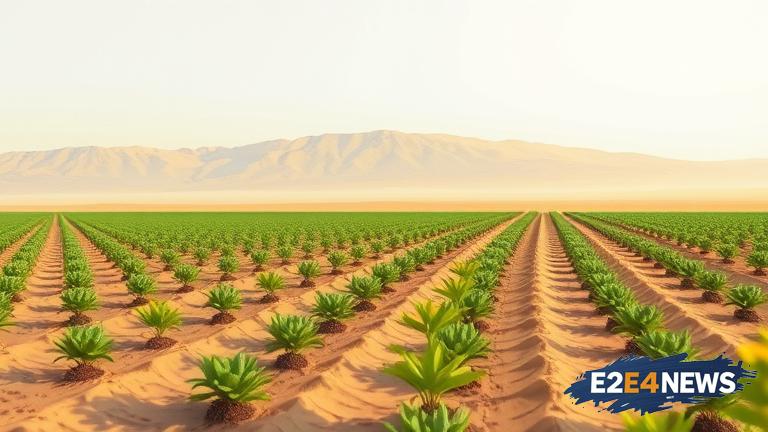Israel, a country known for its innovative approach to agriculture, has been at the forefront of developing and implementing cutting-edge desert farming techniques. These methods have been designed to boost crop yields, reduce water consumption, and promote sustainable farming practices. The Israeli government has been investing heavily in research and development, with a focus on creating new technologies and strategies that can help farmers overcome the challenges of farming in arid regions. One of the key techniques being used is precision agriculture, which involves using advanced sensors and drones to monitor and control crop growth. This approach allows farmers to optimize water and fertilizer usage, reducing waste and minimizing the environmental impact of farming. Another technique being used is hydroponics, which involves growing crops in nutrient-rich solutions rather than soil. This method allows for greater control over the growing conditions, resulting in higher yields and better quality crops. Israel has also been investing in the development of new crop varieties that are specifically bred for desert conditions. These crops are designed to be more resilient to drought and heat, and to require less water and fertilizer. The use of greenhouses is also becoming increasingly popular, as they provide a controlled environment for crops to grow, protecting them from extreme temperatures and weather conditions. In addition to these techniques, Israel has also been promoting the use of renewable energy sources, such as solar and wind power, to reduce the carbon footprint of farming. The country has also been investing in the development of new irrigation systems, which use advanced technologies such as drip irrigation and sprinkler systems to deliver water directly to the roots of the plants. This approach reduces evaporation and runoff, resulting in significant water savings. The Israeli government has also been providing support to farmers, including training and education programs, to help them adopt these new techniques and technologies. The results of these efforts have been impressive, with many farmers reporting significant increases in crop yields and reductions in water consumption. The use of these techniques has also helped to promote sustainable farming practices, reducing the environmental impact of agriculture and promoting biodiversity. Israel’s innovative approach to desert farming has also been attracting international attention, with many countries seeking to learn from its experiences and adopt similar techniques. The country has been sharing its knowledge and expertise with other nations, providing training and support to farmers and governments around the world. The potential for these techniques to be used in other countries is significant, particularly in regions where water scarcity is a major challenge. By adopting these innovative desert farming techniques, countries can increase crop yields, reduce water consumption, and promote sustainable farming practices. This can have a major impact on food security, reducing the risk of hunger and malnutrition, and promoting economic development. In conclusion, Israel’s innovative approach to desert farming is a model for other countries to follow, demonstrating the potential for cutting-edge technologies and techniques to transform the agricultural sector. With its focus on precision agriculture, hydroponics, and renewable energy, Israel is leading the way in promoting sustainable and productive farming practices, and its expertise is being sought after by countries around the world.
